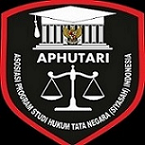Justice and Legal Certainty in the Annulment of Divorce Decisions: The Perspective of Principles Complicating Divorce
Abstract
The annulment of a divorce decision highlights a divergence in judicial perspectives regarding the granting of divorce. One of the primary considerations is that the divorce petition was deemed premature, as it did not yet fulfill the requirements for a divorce to be granted. In annulling the divorce, the judges sought to consider all relevant aspects, including legal justice and the principle of legal certainty. This consideration forms the basis of the present study, which aims to analyze how the judges’ legal reasoning reflects these principles in rendering a decision that annulled the divorce. This study employs a qualitative, normative juridical approach. The primary data sources are the case files Number 1/Pdt.G/2025/PTA.Yk and Number 422/Pdt.G/2024/PA.Wt, while supplementary sources included books, journal articles, and statutory regulations such as the Marriage Law, the Compilation of Islamic Law (KHI), and SEMA Number 3 of 2023. Data collection was conducted through documentation, and analysis was performed using a descriptive approach based on inductive reasoning. The research revealed that the appellate panel of judges annulled the previous divorce decision based on consideration of justice and legal certainty. From the perspective of legal justice, the judges determined that the divorce petition was premature, as it did not meet the 6 months separation requirement, and there was no evidence of domestic violence during the marriage; therefore, the divorce could not be granted. From the perspective of legal certainty, the panel referred to the principle of complicating divorce proceedings, as stipulated in SEMA Number 3 of 2023. Consequently, the divorce was annulled for failing to meet the substantive requirements of the law. Based on these considerations of justice and legal certainty, the panel of judges annulled the divorce, thereby restoring legal certainty regarding the marital status of the husband and wife.
Keywords
Full Text:
PDFReferences
Affan, Ramadani dan Syahrul. “Analisis Yuridis SEMA No. 3 Tahun 2023 Terhadap Kasus Perceraian di Pengadilan Agama Stabat.” Journal Smart Law 3, no. 1 (2024): 40–67.
Anisah, Umi Supraptiningsih dan Nurul. “Keadilan Bagi Istri Akibat Putusan Batal Demi Hukum.” ADHKI Journal of Islamic Family Law 1, no. 1 (2019): 113.
Asman, A, H Sholihah, Z Zuhrah, M Abas, A I Hadi, A Aziz, D Muharman, et al. Pengantar Hukum Perkawinan Islam Indonesia. Jambi: PT. Sonpedia Publishing Indonesia, 2023.
Dahwadin, Muhamad Dani Somantri, Enceng Iip Syaripudin, dan Sasa Sunarsa. Perceraian Dalam Sistem Hukum Di Indonesia. Wonosobo: Penerbit Mangku Bumi, 2018.
Darmawan, Suhaimi, Muhammad Natsir, T. Rasyidin, dan Mustakim. “Relative Competence of the Sharia Court: Talaq Divorce Lawsuit and Protection of Women’s Rights.” Samarah 7, no. 1 (2023): 84–100.
Faiza Hayati Aprila Hasan, Muhammad Azani, dan Hasan Basri. “Pelaksanaan Pengucapan Ikrar Talak Berdasarkan Pasal 131 Instruksi Presiden Nomor 1 Tahun 1991 Tentang Kompilasi Hukum Islam Di Pengadilan Agama Pekanbaru.” Jotika Research in Business Law 3, no. 2 (2024): 53–68.
Firmanto, Taufik, Sufiarina, Frans Reumi, dan Indah Nur Santi Saleh. Metodologi Penelitian Hukum : Panduan Komprehensif Penulisan Ilmiah Bidang Hukum. Jambi: PT. Sonpedia Publishing Indonesia, 2024.
Frimmel, Wolfgang, Martin Halla, dan Rudolf Winter-Ebmer. “How does parental divorce affect children’s long-term outcomes?” Journal of Public Economics 239, no. August (2024): 105201.
Hermansyah. “Interpretasi Asas Mempersulit Perceraian Dalam Perspektif Hukum Islam.” As-Syar’i: Jurnal Bimbingan & Konseling Keluarga 6, no. 1 (2024): 1110–21.
Indonesia, Badan Pusat Statistik. “Jumlah Perceraian Menurut Provinsi dan Faktor, 2022,” 2023.
———. “Jumlah Perceraian menurut Provinsi dan Faktor pada tahun 2020.” Badan Pusat Statistik, 2021.
———. “Jumlah Perceraian menurut Provinsi dan Faktor pada tahun 2021.” Badan Pusat Statistik, 2022.
———. “Jumlah Perceraian Menurut Provinsi dan Faktor Penyebab Perceraian (perkara), 2024,” 2025.
Lubis, Sulaikin, Wismar ’Ain Marzuki, dan Gemala Dewi. Hukum Acara Perdata Peradilan Agama di Indonesia. Jakarta: Kencana, 2018.
Mustikasari Sudrajat, Diannita, dan Aliesa Amanita. “Penyelesaian Perkara Perceraian Dalam Kompilasi Hukum Islam Di Pengadilan Agama Bandung.” Jurnal Dialektika Hukum 2, no. 2 (2020): 173–94.
Nafisah, Durotun, Nasrudin, Ahmad Rezy Meidina, dan Muhammad Fuad Zain. “Comparative Analysis of Islamic Family Law and Normative Law: Examining the Causes of Divorce in Purwokerto, Indonesia.” Samarah 8, no. 2 (2024): 846–71.
Radbruch, Gustav. Legal Philosophy. 3 ed. Massachusetts: Harvard University Press, 1950.
Rahman, Andri Syaiful, dan Rima Alifa Sirri. “Akibat Hukum Perceraian Dan Problematika Pasca Perceraian.” Jurnal Ilmu Syariah dan Hukum (JISYAKU) 3, no. 2 (2024): 148–57.
Rodliyah, Nunung. “Akibat Hukum Perceraian Berdasarkan Undang-Undang Nomor 1 Tahun 1974 Tentang Perkawinan.” Keadilan Progresif 5, no. 1 (2014): 127.
Salsabila, Nurfitra, Suriah Pebriyani Jasmin, dan Mustafa Mustafa. “Efektivitas Asas Mempersulit Perceraian Dalam Undang-Undang Nomor 1 Tahun 1974 Tentang Perkawinan Studi Pada Pengadilan Agama Watampone.” Jurnal Ar-Risalah 4, no. 2 (2024): 10–30.
Siti Chomsiyah, dan I Wayan Agus Vijayantera. “Persyaratan Wajib Untuk Melakukan Perceraian Sebagai Upaya Menegakkan Asas Mempersukar Terjadinya Perceraian.” Jurnal Hukum Saraswati (JHS) 2, no. 2 (2020).
Solihah, Cucu. Hukum Perkawinan dalam Teori dan Perkembangan. Yogyakarta: Zahir Publishing, 2025.
Subekti. Pokok-Pokok Hukum Perdata. Jakarta: PT. Intermasa, 1985.
Syaifuddin, Muhammad, Sri Turatmiyah, dan Annalisa Yahanan. Hukum Perceraian. Jakarta: Sinar Grafika, 2013.
Zuhdi, Syaifuddin, Khudzaifah Dimyati, Kelik Wardiono, Rahma Shofia, dan Abdul Hakim. “The Confiscation of Husbands’ Wealth as A Collateral for Post-Divorce Child Support: Perspective of Maqāsid Al-Sharī’ah.” Samarah 8, no. 2 (2024): 912–33.
DOI: https://doi.org/10.24952/el-thawalib.v6i5.17009
Refbacks
- There are currently no refbacks.









Editorial Office Board :
Kampus UIN Syekh Ali Hasan Ahmad Addary Padangsidimpuan
Jl. T Rizal Nurdin No.Km 4, RW.5, Sihitang, Padangsidimpuan Tenggara, Kota Padang Sidempuan, Sumatera Utara 22733
 Jurnal El-Thawalib is licensed under a Creative Commons Attribution-ShareAlike 4.0 International License.
Jurnal El-Thawalib is licensed under a Creative Commons Attribution-ShareAlike 4.0 International License.
View My Stats






